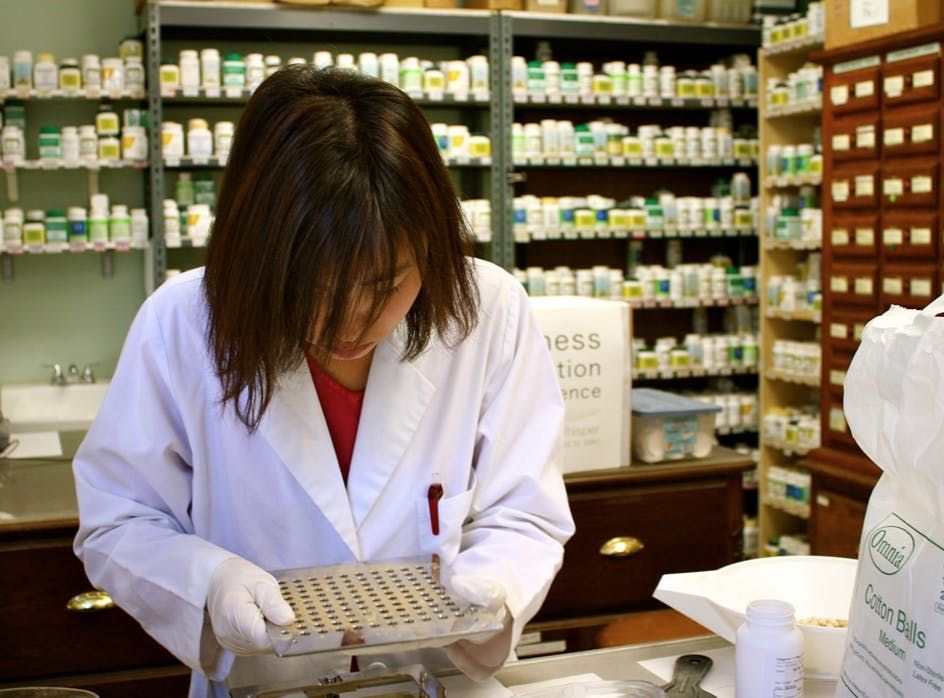If you’re anything like me, you’ve probably spent a fair deal of time
hoping that the medical establishment would begin transitioning to more
user-friendly, safer drugs. So many of the medicines doctors prescribe
today are damaging or downright dangerous, and it’s easy to wonder if
the results are worth the price consumers pay – both financially and
physically.
Today, however, it looks like there’s light at the end of that tunnel.
It comes in the form of cannabidiol (CBD), and all evidence points to
the fact that it may well be the medicine of the future.
CBD 101: What You Need to Know
Within the cannabis plant, there are more than 60 chemical compounds
called
cannabinoids,
including cannabidiol. These cannabinoids work within the body to
activate the cannabinoid receptors in the endocannabinoid system. While
all of these cannabinoids offer benefits of their own, recent research
has shown that
cannabidiol
may present more health benefits than any single manufactured drug
that’s being prescribed today.
Cannabidiol is present in the cannabis plant in high levels. In fact,
it’s the second-most abundant cannabinoid in the entire herb, which is
fortunate because doctors are now singing the praises of CBD for
treating everything from autoimmune
diseases
and diabetes to
arthritis,
nausea,
digestive
disorders
and much more.
CBD has also been suggested to possess neuroprotective effects, which
makes it a fantastic potential treatment for people at high risk of
recurring head injuries (like NFL players).
Thanks to the medicinal value of CBD, this unique little compound could
become big news in the medical world sooner rather than later.
CBD and THC
Until recently, medical professionals believed that THC was a byproduct
of CBD. But today we know that THC and CBD are separate compounds that,
when subjected to heat or extraction processes, undergo extensive
changes that make them psychoactive.
Because CBD can be used without the psychoactive effects of THC, the
compound is an exciting alternative for patients who are attempting to
do away with their current medication in favor of something safer, more
easily accessible, and with far fewer side effects.
CBD and Cancer
CBD is the main compound that gives cannabis its soothing, relaxing
effect. Because of this, CBD has emerged as a powerful treatment for
anxiety disorders, epilepsy, eating disorders and pain. Some scientists
are even evaluating the compound with regard to potential treatment
options for cancer patients – and CBD has already proven
promising!
Within the last several years, a scientist with San Francisco’s Pacific
Medical Center named Dr. Sean McAllister discovered that CBD can
actually restrict the growth of cancer cells throughout the body, thus
slowing tumor growth and providing more time for cancer patients to
explore treatment options.
When Dr. McAllister studied the effect of CBD on breast cancer
patients,
he found that the administration of CBD actually decreased the number of
cancer cells present. Plus, since CBD is completely nontoxic, applying
the compound didn’t present any unwanted side effects for the patients
in question.
CBD and Diabetes
In addition to showing promise for cancer treatment, CBD has also given
hope in the world of diabetes treatment. In a study conducted by Marc
Feldman at the Imperial College of London, CBD was administered to mice
suffering from genetic type-1 diabetes, which generally begins to affect
the mice around 14 weeks of age.
But when one group of mice was treated with CBD during the first seven
weeks of their lives, only 30 percent showed diabetic symptoms at the
regular time of onset. From these results, Feldman concluded that the
administration of CBD is actually capable of preventing the onset of
diabetes in mice – a development which is, needless to say, incredibly
exciting for the human population.
CBD and Inflammation
When it’s not treating cancer or diabetes, CBD is busy being a
formidable opponent for inflammation. CBD has been tested by dozens of
scientists worldwide and has consistently been shown to reduce the
symptoms associated with inflammation from gastrointestinal disorders
and even arthritis.
In fact, numerous lab studies have found that the correct doses of CBD
can reduce symptoms of inflammation up to 50
percent
in lab mice.
The Future of CBD
Over the last several years, consumers of medical marijuana have
displayed a marked preference for high-THC indica strains which often
provide an intense psychoactive experience. Because of this, CBD-rich
strains have fallen out of popularity; today, it’s tough to find strains
with more than 1 percent CBD.
Fortunately, some growers have recognized the medicinal and recreational
importance of CBD-rich
strains,
which are making a comeback around the country. Strains such as
Charlotte’s
Web and
Harlequin have been shown to possess a multitude of medical benefits,
and new strains are being developed on a regular basis.
It’s clear that CBD offers a whole host of health benefits, and the
research into this exciting compound will continue in the coming years.
As it stands now, I’m optimistic about the future of CBD and all of the
incredible treatment options it presents us with.






